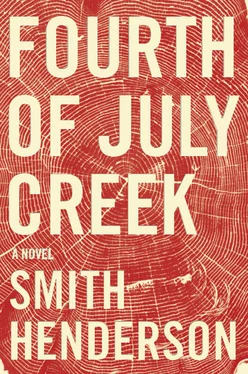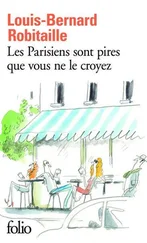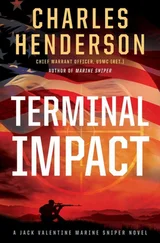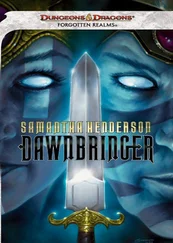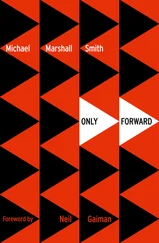He stayed in a small hotel and the next day rented a car. First he tried to find out who had called him from the Child Welfare Office, but in the massive warren of cubicles there seemed to be neither accountability nor culpability, and from every nook emanated some sob or outrage or pleading that seemed to literally hover in a physical murmur over the cubicles and, condensing on the fogged windows, ran in beads like tears. The shift managers couldn’t help him, no one knew who contacted him, and they all had calls to make themselves.
He located his poster of Rachel on the bulletin board, her face obscured by a new notice. He pulled Rachel’s down and tacked it on top of the others and made for downtown. A few hours of walking and a few hours by the fountain at the base of the sailors and soldiers monument, watching the cars and the people go round the roundabout. He cruised the city, the clapboard neighborhoods and tenements and downtown alleys. Into the wholesale district. He saw vagrants of every age and description around the old Union Station. He parked and circled the abandoned brick and granite structure. Stern bartizans like watchtowers. The voices within. He went around the corner and knocked in the plywood over a broken window and pulled himself inside. He tread over a rime of pigeon shit on the ornate marble floors, footsteps echoing throughout the barrel vaults and so did his voice calling out for Rachel, for Cheatham. People hid in here and he said that he was just looking for his daughter, did they have any sympathy at all. He called out that she was with someone named Cheatham. Or Booth. Whispers carried on the dusty claustral air. Someone tell me something, he said.
A bottle shot over the iron railing toward him with a tail of dregs and exploded with a terse pop and fanned across the smooth floor in thousands of discrete shards around and between his feet with the fineness of rock salt.
He was a few days in the hotel, going crazy. He didn’t drink, he didn’t leave the room, he let the television talk at him. He wasn’t going to lose it. He wasn’t going to kill himself. He wasn’t going to give up.
But what was there to do. Useless.
He went to a liquor store and bought a handle of bourbon and then to a grocery and fixed himself up with a packet of razors and a six-pack of Coca-Cola. He filled the ice bucket. He observed the television like a foreigner. He made a drink and the inanities of the game shows began to wear on him. When he looked away from the screen and out the window, the glass warped and rainbowed in his vision like a huge soap bubble and he realized he was hallucinating or crying or both. He took long drafts from the bourbon at the sink. He drew a bath. He wiped away the steam and regarded the man behind it, thin and pale, the maculate sunken eyes. It had grown dark. The water was lukewarm too, and he had lost hours and he was sure that he’d gone insane.
He climbed into the tub in his clothes. He drank and fumbled open the razors from their cardboard box. He practiced cutting through his jeans into his thigh. He felt nothing. A small pink bloom in the water.
Do it.
I can’t.
Do it.
He leapt out of the tub and flung himself down the hallway into the raining night and through the parking lot, his wet feet slapping the pavement and on into a copse of trees where he fell and started pounding the mud with his fists like something might be accomplished this way and then screamed at the weeping sky what am I that I want to die. The leaves like shuddering lids of tin and razors of lightning and how could anything be okay in all this, the world is a blade and dread is hope cut open and spread inside out.
He woke to conversation.
“Door was open.”
“What’s that all over him?”
“Mud.”
“What should we do?”
“Wake up, mister.”
“Look at his knuckles.”
“That lamp is smithereens.”
“Get out,” Pete said.
“It lives.”
“GET OUT!”
“Box the motherfucker’s car in. He ain’t going nowhere till he pays for this shit.”
It occurred to him to look at a map. Gnaw Bone, Indiana, was only an hour away.
It was scarcely a place at all on the way to Bloomington. A few houses, a closed barbecue joint, and a scrap yard with a man sweeping out front. He asked the narrow-faced proprietor was there a family by the name of Pearl in the area. The man said the only Pearls left a few years ago, but the missus had some people up the Clay Lick Road and gave Pete directions.
The house sat among blooming tulip trees. He was met at the screen by a compact barefoot woman in jeans and a stained sweatshirt. Pete said he was a social worker from Montana and just happened to be in the area and wondered if by chance anybody on the property was kin to Jeremiah Pearl or his wife.
His eyes adjusted to the low light in the house. An older, papery version of the woman at the door heaved herself from a recliner.
“Has something happened to my Veronica?” she asked, mashing out a cigarette on an ashtray by the door. The woman’s daughter pushed open the screen and the thin old thing stood in the doorway and searched Pete’s eyes for what he knew.
“I don’t—”
“Something’s happened. What’s happened?”
“I haven’t seen anything. I haven’t seen her. But I have seen Jeremiah. And Benjamin.”
“Benjamin,” she said, as if the thought of the boy pained her.
“Yes.”
She gathered the wattles of skin at her throat and looked liable to cry. She forced a grin on her face. It wouldn’t be polite to do otherwise. Then she said for Pete to come in, and he followed her into the house.
He spoke with the woman and her daughter for several hours. They gave him strawberry soda. The women had sugar diabetes and couldn’t have more than a sip, so they split a can three ways and the women sipped and smoked, the older through wrinkled and furry lips. They got out an old scrapbook and showed him pictures of the family.
VERONICA AS A CHILD and then as a blurry teenager, she hates having her picture taken. A healthy girl, handsome rather than pretty, country-pious, more than her sisters or mother or her father. God bless him. Heart attack last fall.
They showed him young-man Pearl, what he looked like without a beard. Doughy, pudging out around the belly. Given to spells of talk that end in sheer drops of hours-long silences. Times you can’t shut him up, times he’s stone still. He claims to have been a Green Beret but was in fact only a truck driver in Vietnam. He seethed in that heat and came back ginned up to do something with his life now that the war wasn’t going to do it to him or for him.
He meets Veronica on a hayride of all goddamn things. At this point a woman of twenty. Not yet severe and with all the personality of a hatchet, but she has had religion since a tent revival four summers previous.
At the drive-in, she asks is he saved. Does he want to be. He answers sincerely. He’s just out of the army and accustomed to being told what to do, craves it in fact, but couldn’t take orders from a body as fucked up as the US Army, and sure as shit no church.
But Veronica, he’d eat glass for her, he says.
She tells him to come see her when he doesn’t have the beer on his breath.
They are engaged inside of ten days and married when he has enough for a gold band and a down payment on a little place in Gnaw Bone. They don’t answer their phone. Her family hardly sees her anymore, except at the movies. They are always at the movies. He meets her after work and they neck in the back of the theater or in the front seat of his convertible on summer nights, the grasshoppers leaping away from the headlights as they drive in the dark fields to the quarry to night swim and sleep under the stars.
Читать дальше
